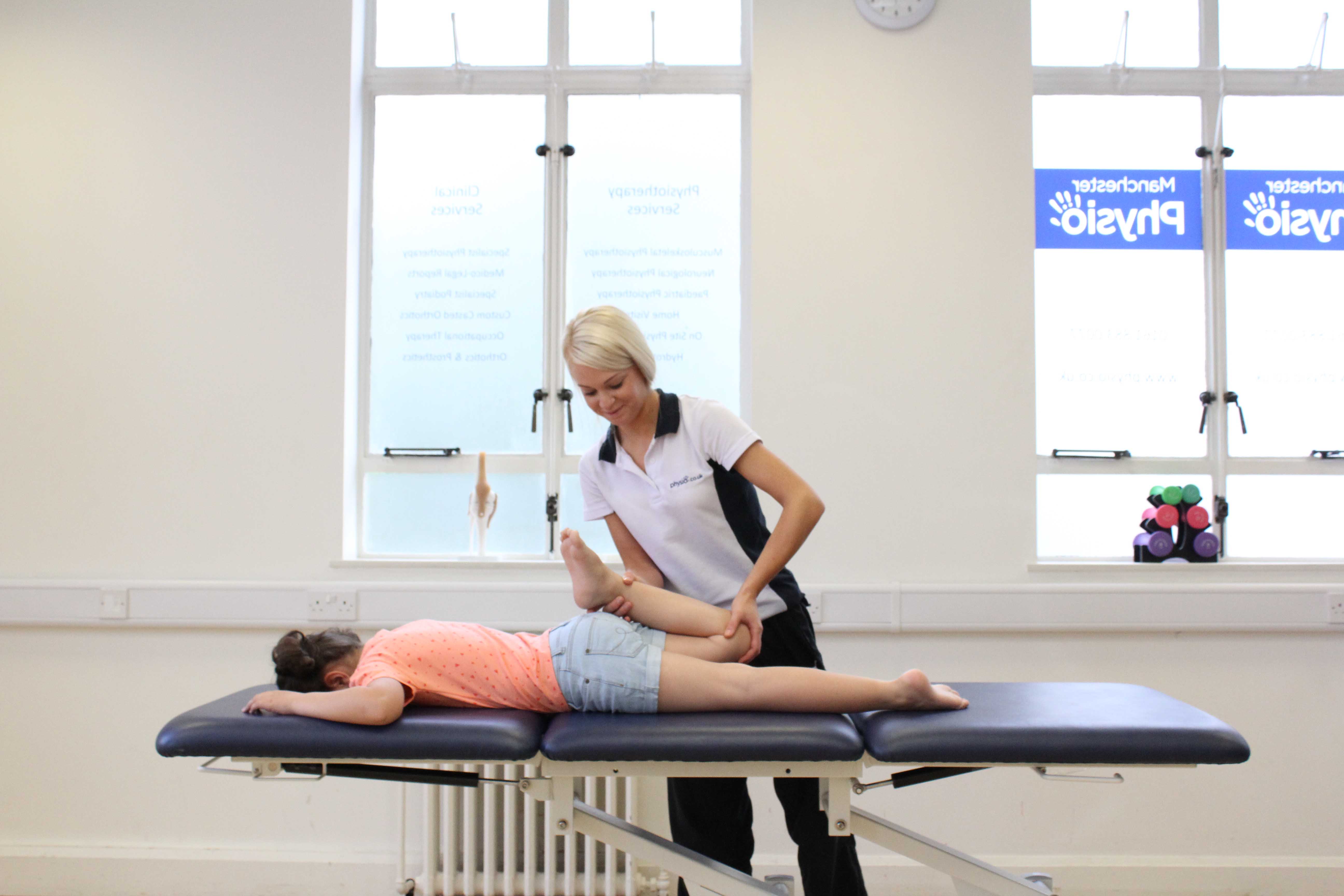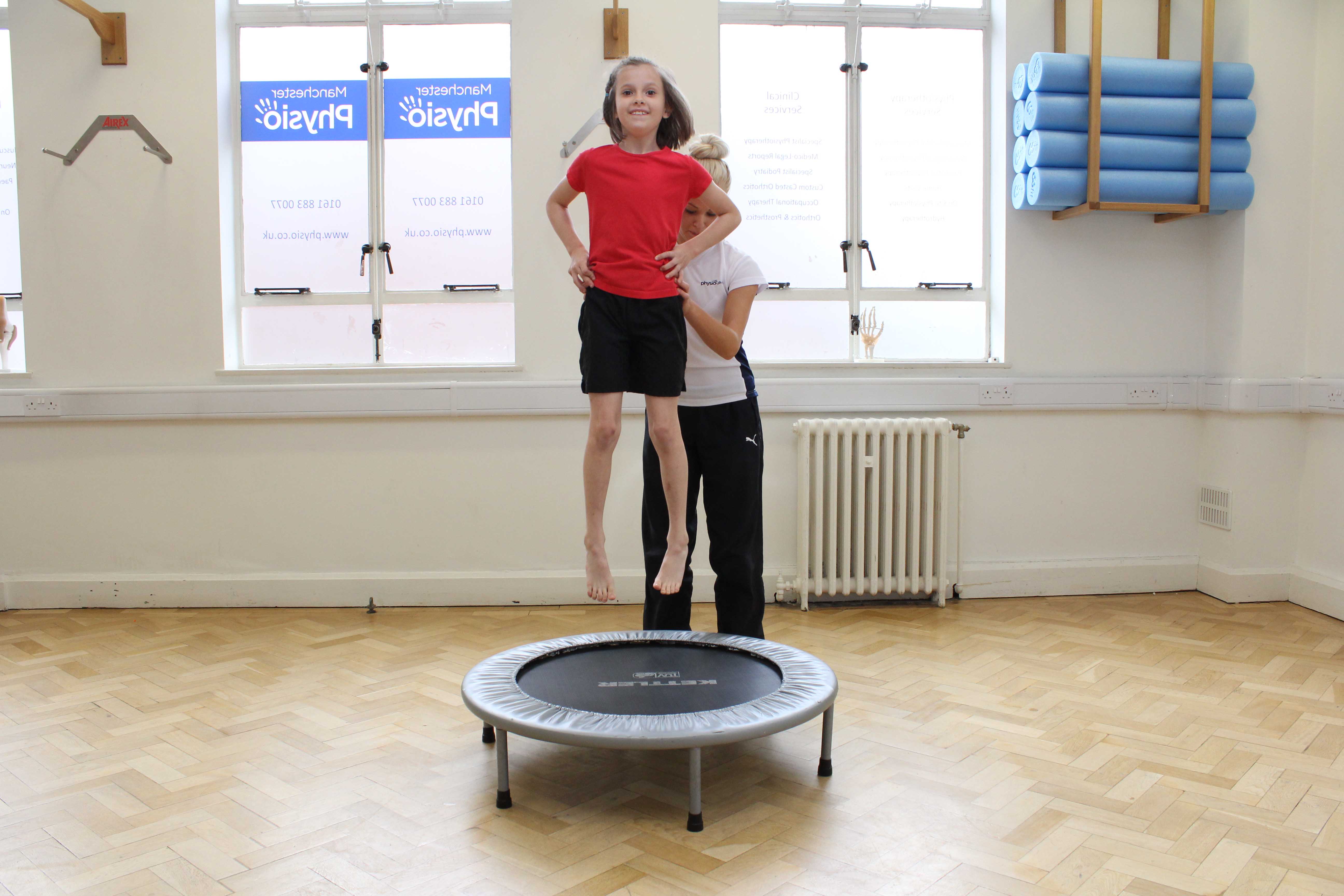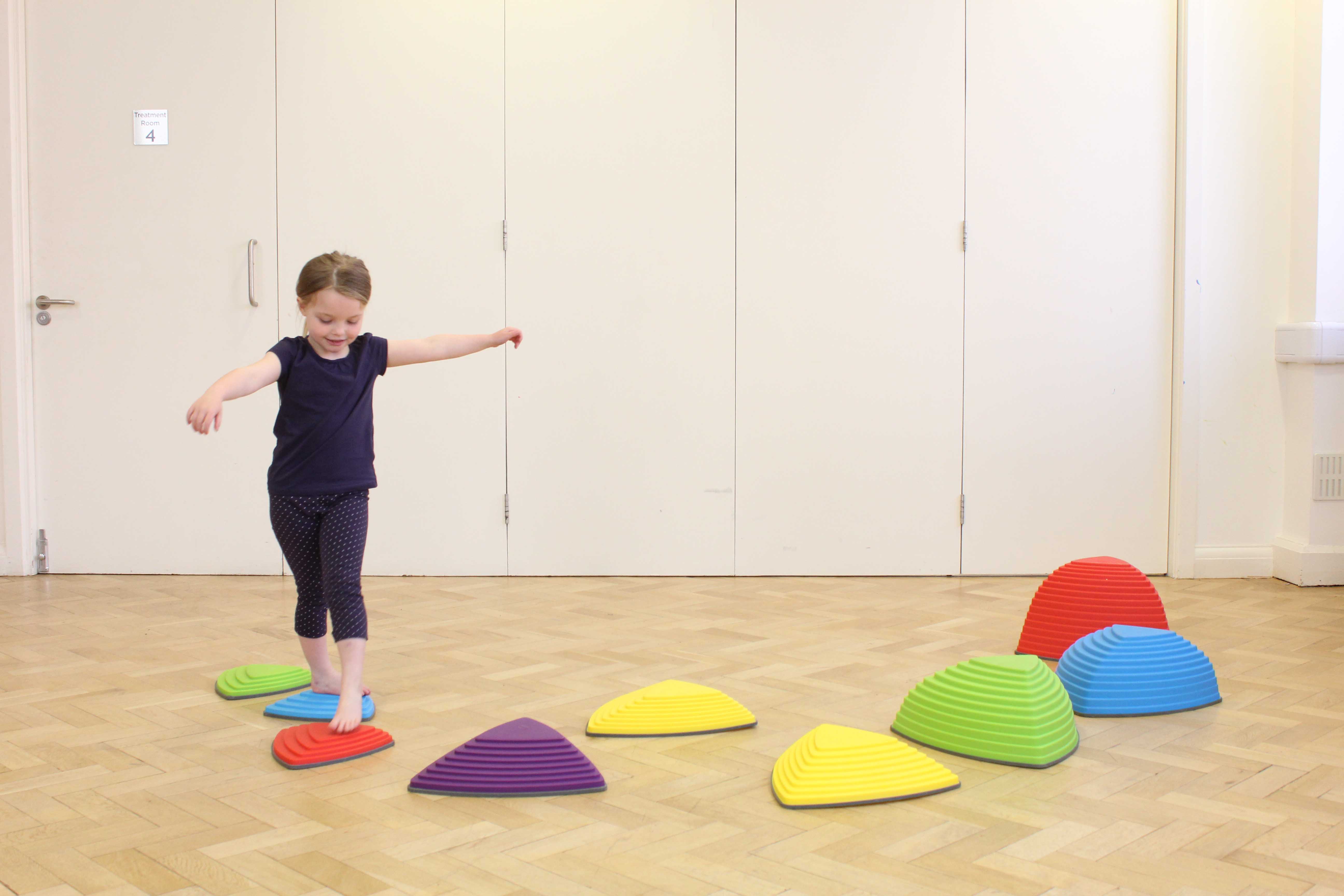What is Cerebral Palsy?
Cerebral palsy is the most common neurodevelopmental disorder and is defined as a set of non-progressive neurological symptoms affecting movement and posture caused by damage to the brain before, during or after birth.
What causes Cerebral Palsy?
Cerebral Palsy can be caused by many different factors.
Prenatal causes include abnormal development, genetic or chromosome abnormalities, trauma and infections.
Complications during birth such as asphyxia and hypoxia (lack of oxygen) and problems into childhood such as head trauma and infection can also cause cerebral palsy.
 Above: Passive stretches and mobilisations to relieve pain and stiffness
Above: Passive stretches and mobilisations to relieve pain and stiffnessWhat are the symptoms of Cerebral Palsy?
Every person with cerebral palsy is affected in a different way. Symptoms of Cerebral Palsy depend on the type, area of brain affected and severity of the condition.
Cerebral palsy often results in developmental problems which may include disturbances in motor function, sensation, cognition, communication, perception and behaviour. Cerebral Palsy in children often affects the development of gross motor skills and the achievement of major milestones such as sitting, crawling and walking and running.
 Above: Paediatric physiotherapist supervising mobility exercises on the trampette
Above: Paediatric physiotherapist supervising mobility exercises on the trampetteThe three main types of cerebral palsy are:
- Spastic cerebral palsy – symptoms include increased muscle tone that affects range of movement and the flexibility of the joints.
- Athetoid cerebral palsy – symptoms include slow, writhing movements usually affecting the hands, feet, arms, or legs causing problems with eating and speaking and difficulty picking up objects
- Ataxic cerebral palsy – symptoms include low muscle tone and reduced co-ordination of movement affecting all four limbs and the trunk leading to reduced balance and unsteady gait.
Diagnosis of Cerebral Palsy
A diagnosis of Cerebral Palsy can be made by a physiotherapist or pediatrician. They will ask you about your child's history and their pattern of development and conduct a thorough physical assessment to confirm a diagnosis.
 Above: balance and stability exercises supervised by a paediatric physiotherapist
Above: balance and stability exercises supervised by a paediatric physiotherapistPhysiotherapy for children with cerebral palsy
Specialist paediatric physiotherapy will help your child with Cerebral Palsy.
At Physio.co.uk paediatric physiotherapy will promote your child's physical development so that they gain more independence with everyday activities at home and at school.
It is important to start physiotherapy treatment as soon as possible to progress your child's development and prevent secondary complications as your child gets older.
Physiotherapy treatment will depend on the severity of your child conditions, their current symptoms and stage of development but may involve:
- Practising everyday activities to increase functional independence
- Exercises involving games to improve muscle strength and balance.
- Stretching to lengthen muscles, normalise tone and prevent stiffness.
- Exercises to promote developmental milestones such as standing and walking independently or with an aid.
- Mirror imaging to increase your child’s awareness of where their limbs are in space at rest and during movement (proprioception).
- Activities to correct positioning and to gain better head and trunk control.
- Constraint movement therapy (CIMT) to improve hand and arm function
- Advice about supportive devices such as using a wheelchair, orthotic devices or other adaptive equipment.
- Hydrotherapy treatment to stretch and strengthen muscles and maximise function
For more information on physiotherapy for cerebral palsy, or to book an appointment please call 0161 883 007, or book online today!

 0330 088 7800
0330 088 7800

































